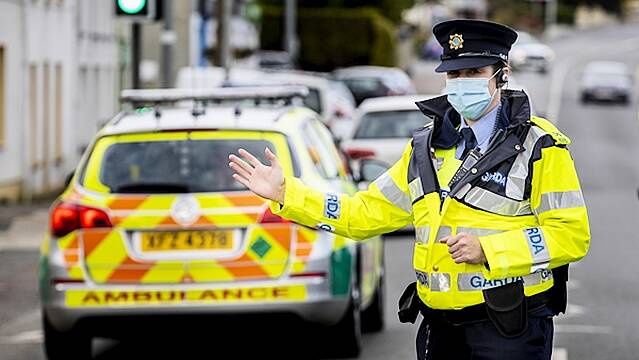Gardaí have said they should be consulted before legislation is introduced to impose penalties for breaching Covid-19 restrictions, as questions surround their practical enforcement.
A bill to introduce a range of fines was approved by Cabinet last night, including a €1,000 fine for hosting a house party. This fine would rise to €2,500 for a third time offender along with a possible six month prison sentence.
On-the-spot fines up to €500 for those not wearing a mask or breaching travel limits are also included in the proposed legislation now set to go before the Oireachtas.
Justice Minister Helen McEntee said the value of the fines had not yet been finalised when speaking to LMFM today.
“What we’re saying is for a fixed penalty, it could be anywhere up to €500 and we are currently working through,” she said.
“At the moment if you don’t wear a facemask in a shop or on public transport, the only fine available to us was up to €2,500 and six months – that’s not proportionate.
“So we are going to change that and obviously bring it down and make it much less. That’s something that we’re working through and will have clarity on in the next day.”
If you are going to introduce new legislation it would be far better to put the stakeholders around the table and to discuss the practical application of that legislation.
In response to the new bill, the Association of Garda Sergeants and Inspectors has said that all stakeholders should be involved in discussing the legislation.
General Secretary Antoinette Cunningham said that gardaí will only be able to issue a fine to someone for hosting a house party if they answer the door, as gardaí do not have the power to enter a home without permission.
“This is the point that we’re making to Government, that if you are going to introduce new legislation it would be far better to put the stakeholders around the table and to discuss the practical application of that legislation,” she said.
Clarity
It comes as the president of the Garda Representative Association (GRA) Jim Mulligan said that his members are awaiting the final details of legislation about the new enforcement measures.
There was a lot of anxiety among the business community and the public, and clarity was required to ease that anxiety, he told RTÉ radio’s News at One.
The gardaí will continue to work to the ‘Three Es’ – engage, explain and encourage, he said. Enforcement would be a last resort.
The vast majority of people had been very compliant during the lockdown back in March and April. He acknowledged that that there had been some who behaved recklessly, but said that the number of parties had been few and far between.
However, Mr Mulligan said he was not sure if fines included in the new legislation will be on-the-spot fines and if they will have to be paid if the case goes to court. “I hope clarity will come this evening.”
Mr Mulligan also expressed concern that implementing the new legislation could “clog up the system” on top of the gardaí’s existing daily duties.
With regard to large public events such as protests, Mr Mulligan said he believed legislation was going to be put in place about the policing of such events.
He said he understood the frustrations of the people of the country who were doing their best, but there was a constitutional right to protest peacefully.







